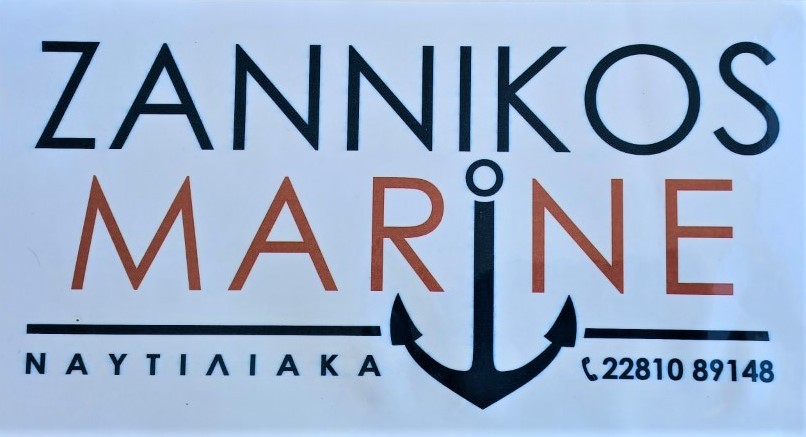Rib and Sea


Ρεμβάζω με τον Γιάνη και βλέπω τα εσώρουχα της Μέρκελ!
Του Ελευθέριου Ρήνου.
Πηγή : http://grnea.gr/2015/07/remvazo-me-to-giani-ke-vlepo-ta-esoroucha-tis-merkel/
 Ακούω δραματικούς τόνους. Βλέπω ανθρώπους να φοβούνται. Με το δίκιο τους. Οι μόνοι που είναι σχετικά ήρεμοι είναι οι μεγαλύτεροι σε ηλικία, που έχουν περάσει και έναν πόλεμο.
Ακούω δραματικούς τόνους. Βλέπω ανθρώπους να φοβούνται. Με το δίκιο τους. Οι μόνοι που είναι σχετικά ήρεμοι είναι οι μεγαλύτεροι σε ηλικία, που έχουν περάσει και έναν πόλεμο.
Κάποιοι έχουν παρεξηγήσει ποια πλευρά υποστηρίζω και θεωρούν ότι υποστηρίζω την κυβέρνηση Τσίπρα. Να εξηγήσω ότι υποστηρίζω τη λογική, τουλάχιστον με τα στοιχεία που έχω μπροστά μου. Όσοι με ξέρουν από τα νιάτα μου, ίσως γνωρίζουν ότι δεν υποστήριξα την Αριστερά. Ποτέ. Όσο κι αν θεωρούσα ότι είναι σημαντική και χρήσιμη πολιτική δύναμη, που πολλές φορές προειδοποιούσε, σαν τη φωνή της λογικής, κυρίως λόγω του μικρού ποσοστού της που της επέτρεπε να λέει αλήθειες. Από τότε όμως η επιρροή της Αριστεράς μεγάλωσε. Και πλέον ασκεί κυβερνητική πολιτική.
Μέχρι αυτή τη στιγμή θεωρώ ότι το οικονομικό επιτελείο της κυβέρνησης έκανε αυτό που είχε σχεδιάσει, όχι για το άμεσο μέλλον, αλλά για τις επόμενες δεκαετίες. Είναι σαφές πλέον, ειδικά σε όσους υποστήριζαν την άκριτη συμφωνία του «ναι» με τους «εταίρους – δανειστές», ότι κάποιοι δεν ήθελαν μια τέτοια συμφωνία. Είναι σαφές ότι οι τελευταίοι πέντε μήνες, ήταν μια διαρκής μάχη, στην οποία η άλλη πλευρά δεν ήθελε συμφωνία. Όποιος δεν το καταλαβαίνει αυτή τη στιγμή, δεν μπορώ να τον βοηθήσω.
Η δική μας πλευρά έχει «παραδοθεί», αμέσως μετά το «ΟΧΙ» του δημοψηφίσματος και την τεράστια πλειοψηφία στη Βουλή. Πλήρης παράδοση. Η άλλη πλευρά λοιπόν πήρε ό,τι ήθελε. Ακριβώς αυτά που ο Γιούνγκερ ανέφερε στα διαγγέλματά του. Τώρα, γιατί ζητάει κι άλλα;
Ο Πρωθυπουργός έλεγε στην ανακοίνωση του δημοψηφίσματος ότι τον εκβίαζαν και για κάθε βήμα που έκανε προς τις θέσεις τους, οι δανειστές απαντούσαν με νέα μέτρα. Κάποιοι ίσως να πρέπει να ακούσουν και πάλι την αναγγελία του δημοψηφίσματος και να τη συνδυάσουν με τις εξελίξεις της τελευταίας εβδομάδας!
Σήμερα λοιπόν οι ξένες πολιτικές δυνάμεις, ειδικά η Γερμανία με τους οικονομικούς σκλάβους της, τον επιβεβαιώνει. Ακόμη και μετά τις περίεργες «ιδιωτικές» επισκέψεις Μπακογιάννη, Χατζηδάκη, Κεφαλογιάννη, Θεοδωράκη, Γεννηματά στις Βρυξέλλες και τον φόρο πολιτικής υποτέλειας. Πού είναι η έντιμη λύση; Για αυτή τη λύση δεν υποστήριξαν κάποιοι τις θέσεις της ΝΔ, του ΠΑΣΟΚ και του Ποταμιού στο πρόσφατο δημοψήφισμα; Δεν έλεγαν στον Πρωθυπουργό να σταματήσει τα παιχνίδια, να διώξει τον Βαρουφάκη και να συμφωνήσει; Συμφώνησε!
 Όσο επικίνδυνο και να είναι για τα μάτια μου, αυτή τη στιγμή βλέπω τις ζαρτιέρες της Μέρκελ και το σώβρακο του Σόϊμπλε. Δεν είναι όμορφο το θέαμα, αλλά τα βλέπω. Έχουν γδυθεί μόνοι τους και κάνουν «πολιτική πασαρέλα» με τα εσώρουχα. Αποδεικνύουν μόνοι τους λοιπόν πως υπήρχε ένα ειδεχθές σχέδιο που δεν προέκυψε τις τελευταίες 48 ώρες. Το παρακάτω έγγραφο διέρρευσε, ως «δια μαγείας», στα μέσα μαζικής ενημέρωσης και τους χάλασε τη «σούπα». Ποιός άραγε να είχε τη δυνατότητα και τη δύναμη να προχωρήσει σε μια τέτοια διαρροή;
Όσο επικίνδυνο και να είναι για τα μάτια μου, αυτή τη στιγμή βλέπω τις ζαρτιέρες της Μέρκελ και το σώβρακο του Σόϊμπλε. Δεν είναι όμορφο το θέαμα, αλλά τα βλέπω. Έχουν γδυθεί μόνοι τους και κάνουν «πολιτική πασαρέλα» με τα εσώρουχα. Αποδεικνύουν μόνοι τους λοιπόν πως υπήρχε ένα ειδεχθές σχέδιο που δεν προέκυψε τις τελευταίες 48 ώρες. Το παρακάτω έγγραφο διέρρευσε, ως «δια μαγείας», στα μέσα μαζικής ενημέρωσης και τους χάλασε τη «σούπα». Ποιός άραγε να είχε τη δυνατότητα και τη δύναμη να προχωρήσει σε μια τέτοια διαρροή;
Είναι ηλίου φαεινότερο ότι το σχέδιο των Γερμανών περιελάμβανε την ιδιοποίηση των όποιων κοιτασμάτων και της περιουσίας της χώρας μας, για να συνεχίσουν τη ζωούλα τους κάποιοι, με κέρδη για εταιρείες και τράπεζες, με τεράστιους μισθούς, συντάξεις πέραν από κάθε λογική, επιδόματα για να κάθονται και ό,τι μπορεί να σκεφτεί κανείς. Όχι στην Ελλάδα. Στην κεντρική Ευρώπη. Εκεί που την προηγούμενη φορά που ανέπτυξαν αντίστοιχες ορέξεις για την εκμετάλλευση ξένων κρατών και μιλούσαν για το «ζωτικό χώρο» της Γερμανίας, επέλεξαν σαν ηγέτη τους τον κοντό με το μουστάκι.
Η ερώτησή μου λοιπόν προς τα «εξυπνοπούλια» της κεντρικής Ευρώπης είναι μία: Αν βγούμε για 5 χρόνια από το ευρώ, γιατί να επιστρέψουμε; Είτε θα καταστραφούμε, οπότε δεν θα μπορούμε να επιστρέψουμε, είτε θα επιτύχουμε, οπότε δεν θα έχουμε λόγο να επιστρέψουμε.
Και η προτροπή μου προς τον Πρωθυπουργό Αλέξη Τσίπρα επίσης μία: Κύριε Πρωθυπουργέ, ενημέρωσε τις ξένες αντιπροσωπείες ότι την τελική απόφαση θα την έχει ο Ελληνικός Λαός. Έκανες δημοψήφισμα για το προηγούμενο πακέτο μέτρων. Παραδέχθηκες ότι τις ύψιστες αποφάσεις πρέπει να τις παίρνει ο λαός. Ο ελληνικός λαός εκβιάστηκε, πολεμήθηκε, τσαλαπατήθηκε, αλλά ψήφισε «ΟΧΙ». Η Βουλή σε εξουσιοδότησε για νέα συμφωνία με 251 βουλευτές. Φέρε την τελική συμφωνία σε νέο δημοψήφισμα και μην αρκεστείς απλά να την περάσεις από τη Βουλή των «wannabe – quislings».
Σαφές το ερώτημα πια στο νέο δημοψήφισμα:
Ναι στο πακέτο μέτρων και στην παράδοση της περιουσίας του λαού μας και παραμονή στο ευρώ.
Όχι στο πακέτο μέτρων και έξοδος από το ευρώ.
Αν θέλουν έστω και μια σταγόνα παραπάνω από το αίμα μας, ρίξε την πρόταση του νέου δημοψηφίσματος στο τραπέζι, μαζί με το έγγραφο του Σόϊμπλε και άφησέ τους να «διασκεδάσουν» τη νύχτα με τους χειρότερους εφιάλτες τους.
Κλείνοντας, παραθέτω το άρθρο του Γιάνη Βαρουφάκη, αυτούσιο από τη Βρετανική «The Guardian» (στα αγγλικά), όπως δημοσιεύτηκε προχθές, Παρασκευή 10 Ιουλίου 2015. Νομίζω είναι επαρκής απάντηση για όποιους βιάστηκαν να τον κατηγορήσουν για τις «διακοπές» του στην Αίγινα, τη στιγμή που ήταν ξεκάθαρο ότι απλά απέφυγε να ανεβάσει το πολιτικό θερμόμετρο στη Βουλή και έκανε ευκολότερη τη ζωή του Πρωθυπουργού του.
 Greece’s financial drama has dominated the headlines for five years for one reason: the stubborn refusal of our creditors to offer essential debt relief. Why, against common sense, against the IMF’s verdict and against the everyday practices of bankers facing stressed debtors, do they resist a debt restructure? The answer cannot be found in economics because it resides deep in Europe’s labyrinthine politics.
Greece’s financial drama has dominated the headlines for five years for one reason: the stubborn refusal of our creditors to offer essential debt relief. Why, against common sense, against the IMF’s verdict and against the everyday practices of bankers facing stressed debtors, do they resist a debt restructure? The answer cannot be found in economics because it resides deep in Europe’s labyrinthine politics.
In 2010, the Greek state became insolvent. Two options consistent with continuing membership of the eurozone presented themselves: the sensible one, that any decent banker would recommend – restructuring the debt and reforming the economy; and the toxic option – extending new loans to a bankrupt entity while pretending that it remains solvent.
Official Europe chose the second option, putting the bailing out of French and German banks exposed to Greek public debt above Greece’s socioeconomic viability. A debt restructure would have implied losses for the bankers on their Greek debt holdings.Keen to avoid confessing to parliaments that taxpayers would have to pay again for the banks by means of unsustainable new loans, EU officials presented the Greek state’s insolvency as a problem of illiquidity, and justified the “bailout” as a case of “solidarity” with the Greeks.
To frame the cynical transfer of irretrievable private losses on to the shoulders of taxpayers as an exercise in “tough love”, record austerity was imposed on Greece, whose national income, in turn – from which new and old debts had to be repaid – diminished by more than a quarter. It takes the mathematical expertise of a smart eight-year-old to know that this process could not end well.
Once the sordid operation was complete, Europe had automatically acquired another reason for refusing to discuss debt restructuring: it would now hit the pockets of European citizens! And so increasing doses of austerity were administered while the debt grew larger, forcing creditors to extend more loans in exchange for even more austerity.
Our government was elected on a mandate to end this doom loop; to demand debt restructuring and an end to crippling austerity. Negotiations have reached their much publicised impasse for a simple reason: our creditors continue to rule out any tangible debt restructuring while insisting that our unpayable debt be repaid “parametrically” by the weakest of Greeks, their children and their grandchildren.
In my first week as minister for finance I was visited by Jeroen Dijsselbloem, president of the Eurogroup (the eurozone finance ministers), who put a stark choice to me: accept the bailout’s “logic” and drop any demands for debt restructuring or your loan agreement will “crash” – the unsaid repercussion being that Greece’s banks would be boarded up.
Five months of negotiations ensued under conditions of monetary asphyxiation and an induced bank-run supervised and administered by the European Central Bank. The writing was on the wall: unless we capitulated, we would soon be facing capital controls, quasi-functioning cash machines, a prolonged bank holiday and, ultimately, Grexit.
The threat of Grexit has had a brief rollercoaster of a history. In 2010 it put the fear of God in financiers’ hearts and minds as their banks were replete with Greek debt. Even in 2012, when Germany’s finance minister, Wolfgang Schäuble, decided that Grexit’s costs were a worthwhile “investment” as a way of disciplining France et al, the prospect continued to scare the living daylights out of almost everyone else.
By the time Syriza won power last January, and as if to confirm our claim that the “bailouts” had nothing to do with rescuing Greece (and everything to do with ringfencing northern Europe), a large majority within the Eurogroup – under the tutelage of Schäuble – had adopted Grexit either as their preferred outcome or weapon of choice against our government.
Greeks, rightly, shiver at the thought of amputation from monetary union. Exiting a common currency is nothing like severing a peg, as Britain did in 1992, when Norman Lamont famously sang in the shower the morning sterling quit the European exchange rate mechanism (ERM). Alas, Greece does not have a currency whose peg with the euro can be cut. It has the euro – a foreign currency fully administered by a creditor inimical to restructuring our nation’s unsustainable debt.
To exit, we would have to create a new currency from scratch. In occupied Iraq, the introduction of new paper money took almost a year, 20 or so Boeing 747s, the mobilisation of the US military’s might, three printing firms and hundreds of trucks. In the absence of such support, Grexit would be the equivalent of announcing a large devaluation more than 18 months in advance: a recipe for liquidating all Greek capital stock and transferring it abroad by any means available.
With Grexit reinforcing the ECB-induced bank run, our attempts to put debt restructuring back on the negotiating table fell on deaf ears. Time and again we were told that this was a matter for an unspecified future that would follow the “programme’s successful completion” – a stupendous Catch-22 since the “programme” could never succeed without a debt restructure.
This weekend brings the climax of the talks as Euclid Tsakalotos, my successor, strives, again, to put the horse before the cart – to convince a hostile Eurogroup that debt restructuring is a prerequisite of success for reforming Greece, not an ex-post reward for it. Why is this so hard to get across? I see three reasons.
One is that institutional inertia is hard to beat. A second, that unsustainable debt gives creditors immense power over debtors – and power, as we know, corrupts even the finest. But it is the third which seems to me more pertinent and, indeed, more interesting.
The euro is a hybrid of a fixed exchange-rate regime, like the 1980s ERM, or the 1930s gold standard, and a state currency. The former relies on the fear of expulsion to hold together, while state money involves mechanisms for recycling surpluses between member states (for instance, a federal budget, common bonds). The eurozone falls between these stools – it is more than an exchange-rate regime and less than a state.
And there’s the rub. After the crisis of 2008/9, Europe didn’t know how to respond. Should it prepare the ground for at least one expulsion (that is, Grexit) to strengthen discipline? Or move to a federation? So far it has done neither, its existentialist angst forever rising. Schäuble is convinced that as things stand, he needs a Grexit to clear the air, one way or another. Suddenly, a permanently unsustainable Greek public debt, without which the risk of Grexit would fade, has acquired a new usefulness for Schauble.
What do I mean by that? Based on months of negotiation, my conviction is that the German finance minister wants Greece to be pushed out of the single currency to put the fear of God into the French and have them accept his model of a disciplinarian eurozone.














